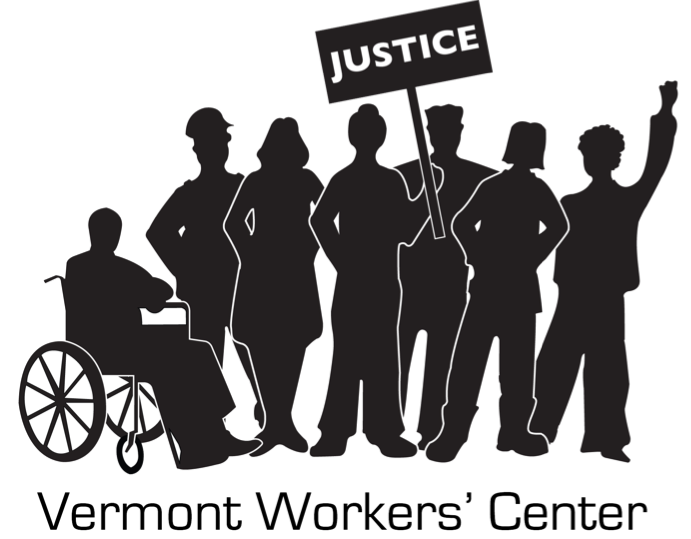Many thanks to Workers Center members who rallied in support of the 170 Barre teachers during their eleven day strike. We know that unionized firefighters, municipal employees, state employees, electrical workers, UVM and state college employees — and of course many, many teachers and school support staff — joined the picket lines, brought food and made contributions to the BEA strike fund.
Details of the settlement still await ratification by all parties, but we’ve heard that the terms are considered to be a very fair and respectful compromise.
Here at the Workers Center we made outreach calls and sent Action Alerts to support the Barre strike, as we do for every struggle where community support is needed. We were saddened to see that some of our subscribers expressed negative reactions to this strike and want to offer a perspective which may help place this in a broader context:
Most union negotiations now, for all workers, are fighting off concessions: Nearly every unionized worker must fight hard these days just to maintain health insurance benefits, fair wage structures and other job protections that they’d won long ago. The globalized economy is in a “race to the bottom” and pushing everyone down. The health insurance crisis is just one symptom of a economy that is punishing all working people, and rewarding only the corporations and those who profit from them. All workers want to fight off concessions… but only certain workers, with the strength of a powerful union and community support, can fight back against concessions. And it is only this fight-back that slows the “race to the bottom.”
We’re not better off if we’re all sliding to the lowest level: Some disgruntled people complain that “I don’t have health insurance at my job, so teachers shouldn’t either.” By this logic, a downward spiral of ever-lower wages and ever-weaker health insurance benefits is exactly what we should all expect. But of course that’s ridiculous. How can we fight for a high standard of wages and benefits for everyone if that standard no longer exists for anyone? Should it only be CEO’s that have good benefits? Shouldn’t we be joining hands to demand that all workers — regardless of job or union status — get what teachers have fought for?
Why are teachers be singled out? A lot of venom sometimes get unleashed at teachers because they are public employees whose salary is paid by local taxes. However, there are so many myths and holes in this that it doesn’t hold up to scrutiny. First, here in Vermont, the local property tax has been replaced by a much fairer system that is based in large part on ability to pay. No one making less than $88,000 in household income has to pay more than about 2% of their income for school taxes. But beyond that, just consider that taxpayers are already paying for the health insurance of nearly 60% of all those who have health insurance — those on Medicare, Medicaid, veterans, current members of the military, all federal employees, all state employees, all municipal employees, all elected officials… the list goes on and on. And wouldn’t most people prefer to see their tax dollars spent on a good school system than on another nuclear weapons system? The point is that tax dollars for schools is the best social investment any of us can make.
Teachers are no different from all workers. Teachers have special work conditions, just as all workers do. Only electric line workers have to get out of bed in the middle of the night during ice storms to repair downed lines. Only nurses must be compassionate and skilled at the beds of seriously ill and dying patients. Only teachers have to shoulder responsibility for hundreds of diverse demands every hour of every day from students, parents, administrators and their communities. But what makes all workers the same is their universal need for wages comparable to others doing their job, for working conditions that allow them to do a good job, and for economic security and dignity.
United we stand, divided we fall. Ultimately, this is the most important point. Who benefits when workers criticize other workers? No one really does. We can all only benefit when we recognize the common cause we have as workers, and when we stand together to defend any worker who’s in a brave fight against the race to the bottom.
